PRESIDENTS, PAUPERS, POACHERS AND THE PICCOLO – A DAY AT WORK IN KENYA
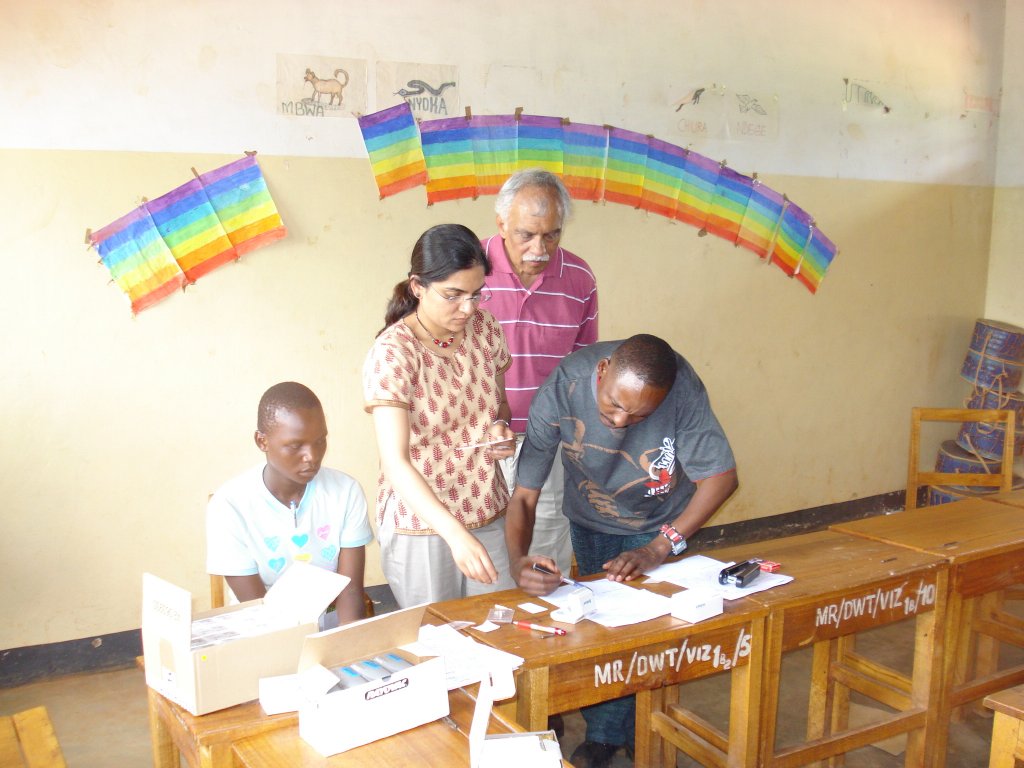
I was watching the youth orchestra that my daughter is part of with great pride. She was managing to keep up with the fantastic rendition of Tchaikovsky’s 1812 Overture at the tender age of 10. Any mother would be beaming. And then the audiologist in me woke up, terrified. She was sitting right in front of the woodwinds. The drama in the Overture was palpable. Surely, that sound level couldn’t be safe?
I wrote to Marshall Chasin asking for advice on how I could help this orchestra. Honestly, I wasn’t expecting a reply that was so quick or so detailed! Living in a country where you’re never sure if the traffic lights are working or where it is quite usual to have people turn up over an hour late, his efficient response was a breath of fresh air. So, when he asked me to write something for this journal, I had to make some effort to reciprocate in kind!
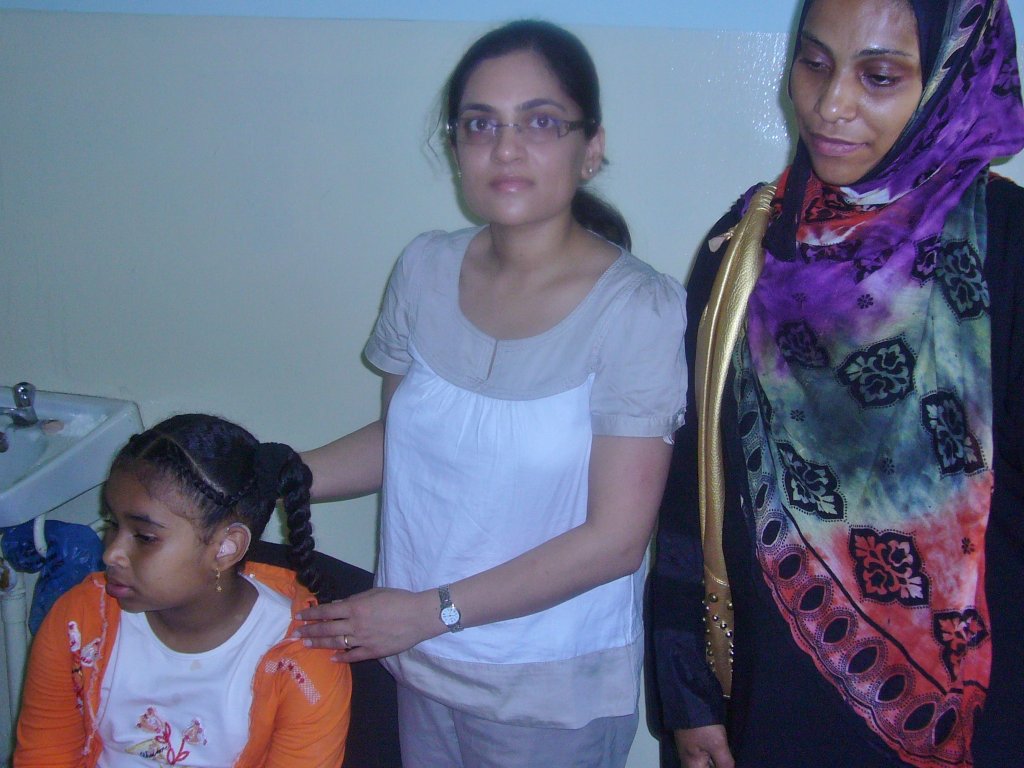
First person with hearing aid in Zanzibar.
Kenya is a country with a population of 44m. There are less than 50 ENT surgeons and just a handful of audiologists. As I read Marshall’s response, I felt glad to have some company! It can be a lonely world in audiology out here.
What goes through your mind when you think of Africa? I am guessing many of you might have heard of volunteer projects and camps to help with hearing loss for all those ‘poor people in Africa’. Perhaps some of you have been part of these efforts. I definitely was part of many such projects whilst I was studying audiology in the UK. I remember feeling elated about fitting 70 hearing aids in a day to a long queue of people who had travelled miles to Nairobi because they had heard of a free ENT camp. I proudly took pictures of the little boy whose toothless smile touched my heart, and who I never heard from again.
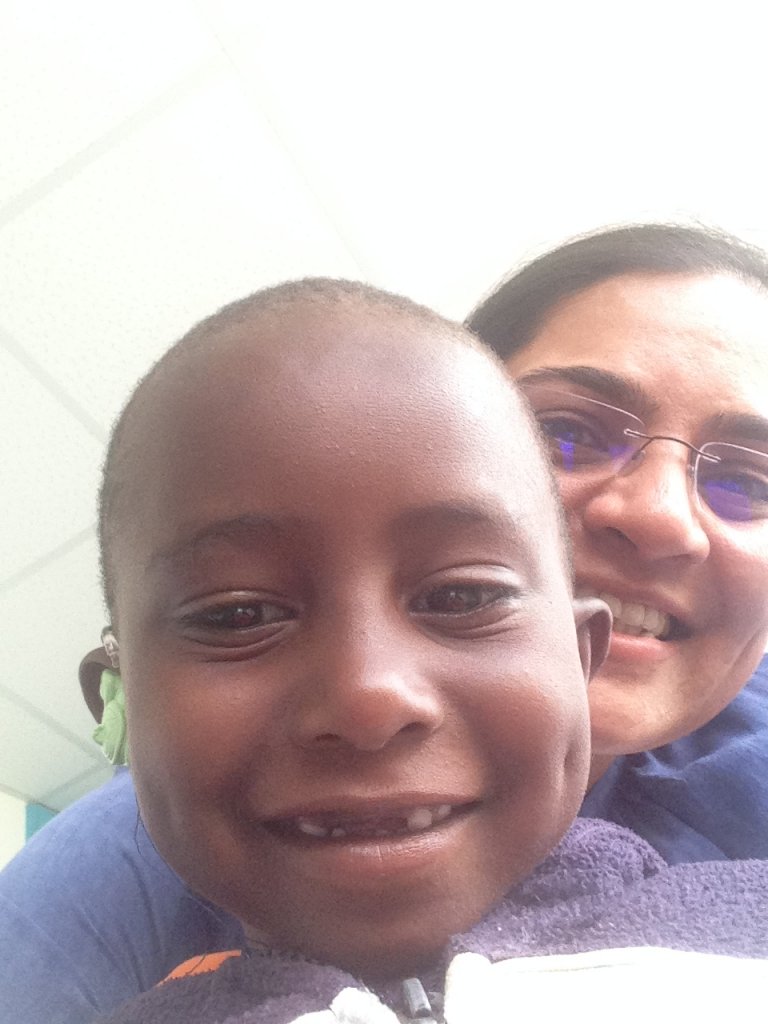
Having now returned permanently to Kenya, I see things quite differently. I don’t feel like the person who has helped out the unfortunate for a week and gone back home. Whilst I may not fit 70 hearing aids in a day (or indeed in a month!), I feel that I am able to help in a more sustainable way that can really make a difference to the patient’s life. I can follow up to check that they have access to batteries, that hearing aids are not sitting in the drawer because of being blocked with wax or that earmould tubings are not cracked.
Message: If you are going to support a project in a 3rd world country, do also ensure that there is follow up after you leave. Leave plenty of spare parts, train local people and ask for regular reports on patient’s progress. Consider setting up a mentorship network. There are many isolated audiologists who would benefit just by your guidance.
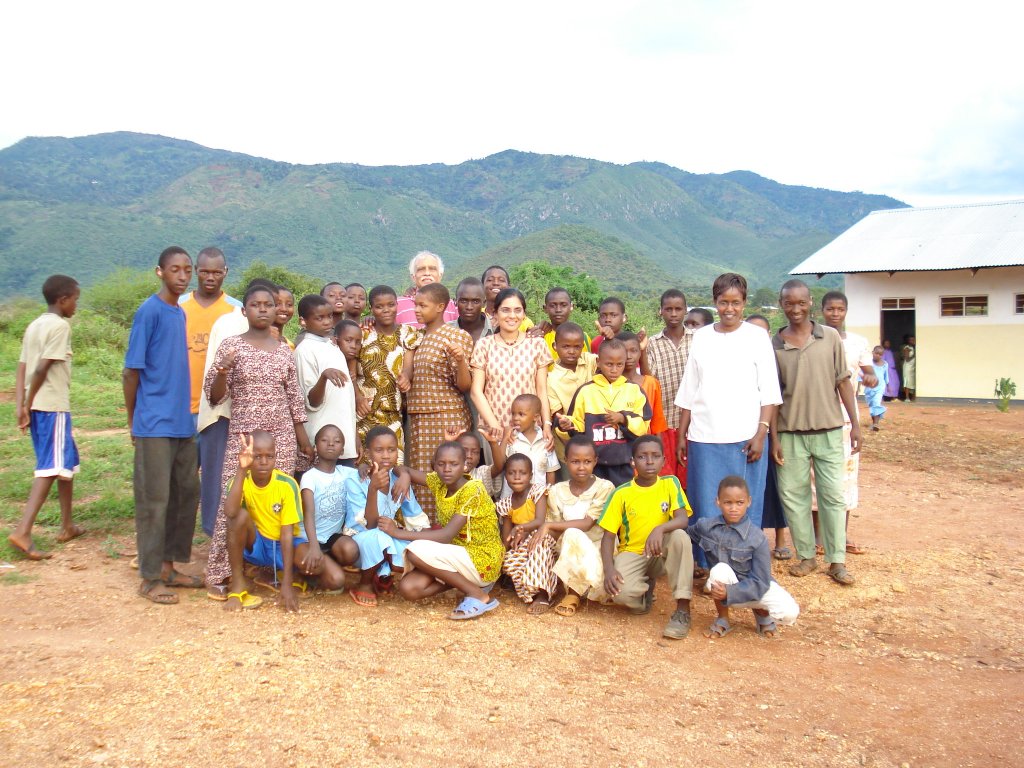
Training and hearing aid fitting in Tanzania.
After considering various options on my return home, I decided to set up practice independently in Nairobi. That was the best decision I made, and the greatest challenge I faced. The lack of audiologists also means that there are no suppliers locally. Nobody to calibrate audiometers or to service hearing aid warranties. I quickly learned to deal with shipping companies, exchange rate fluctuations, and have my own sound treatment room constructed. Investing in equipment took on a different dimension. With all the regular shipping, size was of utmost importance. I bought from countries that had the most frequent flights to Kenya. I eventually set up my own hearing aid repair workshop and brought back suitcases full of impression materials and earmould tubing whenever I travelled. The irony was that I had helped raise thousands of pounds to donate audiology equipment and hearing aids. Here I was working out business plans and taking loans to furnish my own practice. I am glad I did that. For now, I know that the most sustainable work is backed by a good business plan.
Message: If you want to help an underserved region, the best way is to build capacity. Focus on development, not charity. Back the development up with a sensible and sustainable business plan.
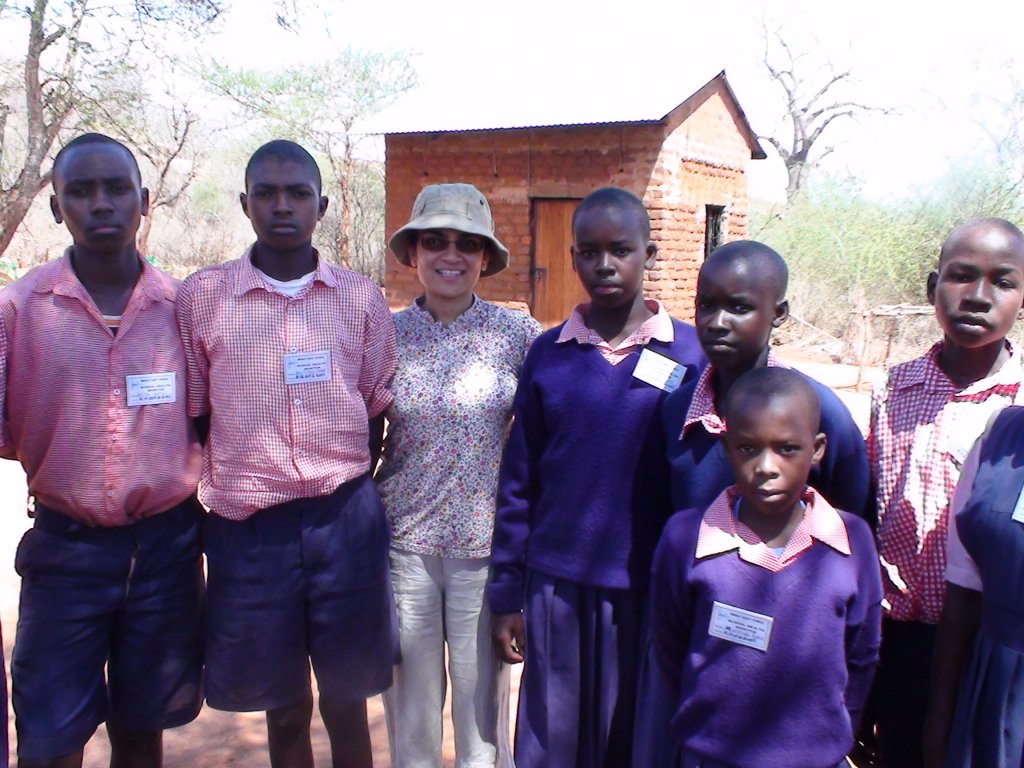
School Health Monitor program.
It took a couple of years but I slowly built up a reputation not just in Kenya, but within surrounding East Africa countries. In a typical day, I could quite easily see a past country president or a child brought in by a relief organization. My list of clients reads almost like a who’s who of Kenya. Yet, I will find the greatest joy in seeing the little girl brought in by a missionary with her confident recital of Twinkle Twinkle Little Star!
Ethical lines can be fine even in countries where there are federal regulations (ever been tempted to sell to the patient visiting just for the week, even though there is an audiologist in the country they live in?). I have learned to build my own ethical lines even more rigorously. In a country rife with corruption, I have learned that a dogged pursuit of quality and continuously working out best practice is the surest way to build trust and confidence in your customers. It doesn’t matter that nobody is going to enforce verification of every hearing aid fitting, to me following best practice is important because that is the standard I have set for myself. Suddenly, it doesn’t matter how well heeled your patient is or whether they have been visiting clinics all over the world. Knowing that you are following the best possible practice fuels your own confidence in dealing with a not always perfect solution or outcome.
Message: Don’t compromise on your standards of practice wherever you are – even if you will not be penalized for doing so!
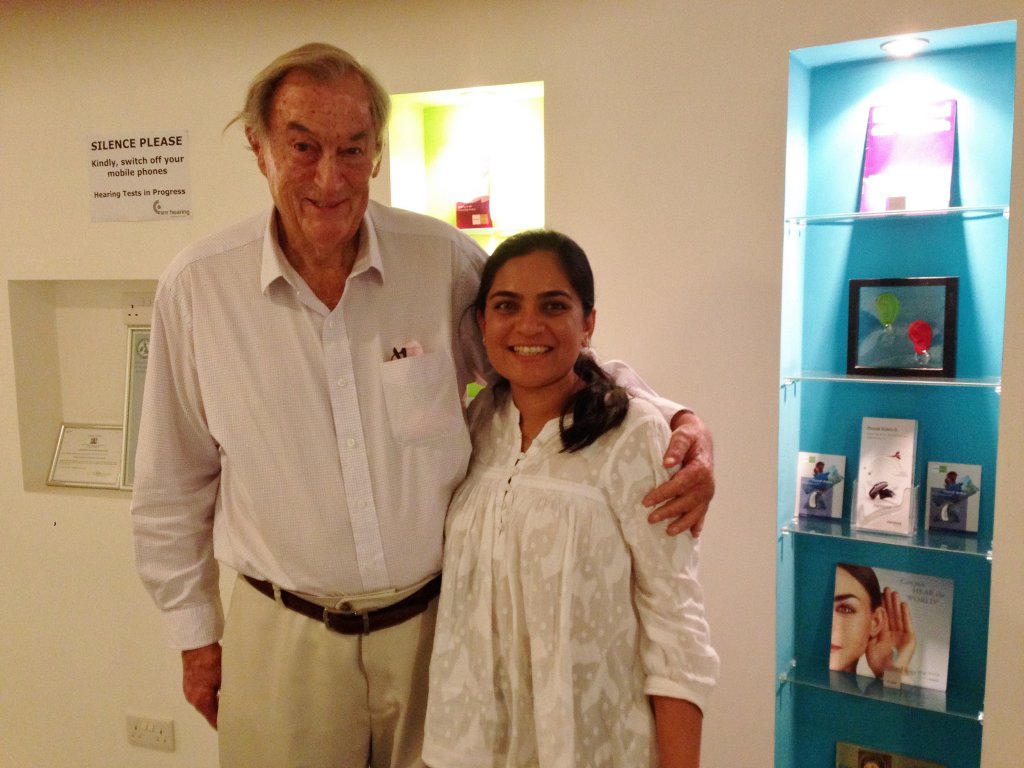
Dr. Richard Leakey.
And now the M word. Shhh… did I just say Money? Certainly, a taboo word amongst audiologists in the UK National Health Service. Why are we so afraid to quote on the premium hearing aid product? In our part of the world, why are we constantly relying on donations? Why do we assume that only the cheapest products will suffice? If you don’t make your profit margin, how will you progress into the next phase of your work, invest in better training and better equipment, and for that matter really help out the person who is genuinely unable to afford treatment?
Message: Just because you are in a developing part of the world, don’t assume that people will not pay for quality. Indeed, there are enough people who will be willing to invest in a service that they believe in. Do you know that smartphone penetration is already at 44% in Kenya? Not bad!
Which brings me back to the Safaricom Youth Orchestra that my daughter is part of. When we heard about the auditions, we signed up thinking that it would be a great platform for music development. As far as I was concerned, it meant that she would be forced to practice her violin! What I hadn’t expected is what a lifelong social lesson the Orchestra would offer all of us. Within the orchestra are children who have been recruited and coached by the wonderful Art of Music Foundation. Children from the slums who consider it fortunate to be getting a daily meal. How does Mozart help these kids I wondered.
Sure enough, the pride in learning something seen only on grand European stages, the ability to express yourself, the discipline and perseverance required to learn the instrument and the teamwork needed are bringing about huge changes not only amongst these children but within their communities. Oh, the glow that the mothers have when they put on their Sunday best to come and watch their child perform! As for my daughter? She has learned to look past social divides and to see people for their skill, talent and friendship. She no longer looks at the clothes they wear but admires the beautiful music they make together.
Message: Look beyond the poverty and social divide. Treat everyone with dignity. Respect their aspirations and see how you can partner with them to help them fuel their own success.
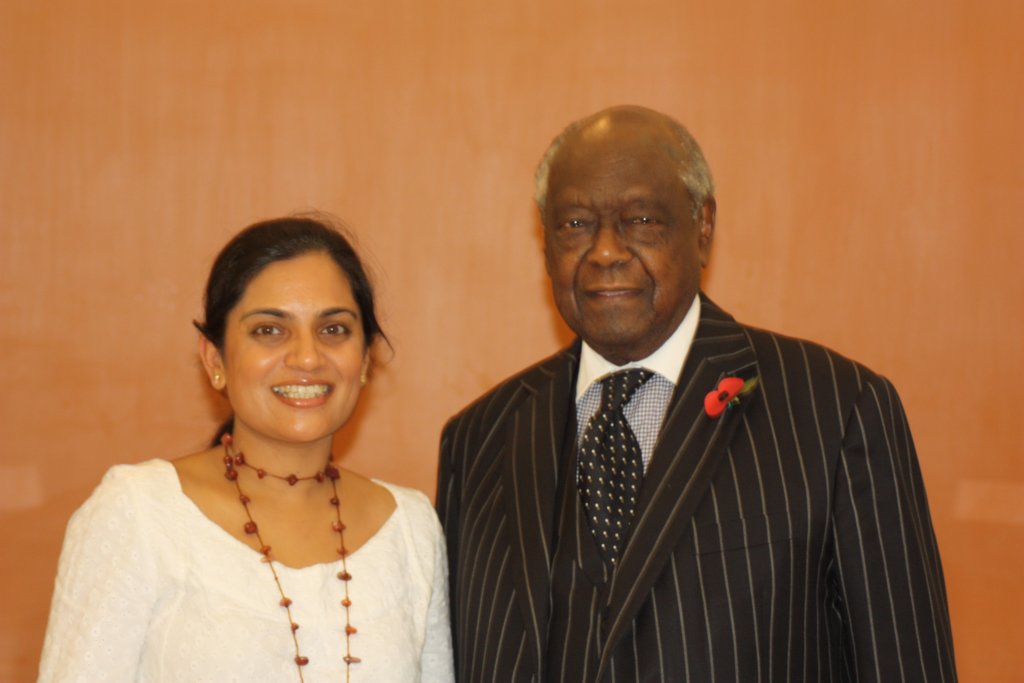
Sir Charles Njonjo.
What about the poachers I hear you ask? Yes, that is a strange one. I have a large list of clients who are safari guides and conservationists. After years in London, I was used to patients telling me they needed to hear better in meetings or in restaurants. Imagine my surprise when a famous conservationist and author told me that her first priority for improved hearing is to hear the poachers approaching? Now, how would you take that requirement into consideration for your hearing aid fitting?

